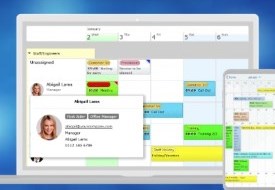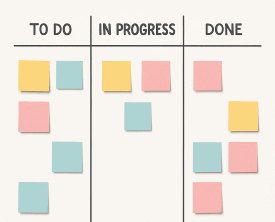Using Software for Scheduling Resources to Streamline Efficiency
By Mark Ballance, Resource Scheduling Specialist at Schedule it Ltd since 2010.
 Resource scheduling is a critical aspect of project management and organizational efficiency. Properly allocating and managing resources ensures that projects are completed on time, within budget, and with optimal utilization of available assets.
Resource scheduling is a critical aspect of project management and organizational efficiency. Properly allocating and managing resources ensures that projects are completed on time, within budget, and with optimal utilization of available assets.In this blog, we will explore the benefits of using software to schedule resources and its role in enhancing productivity. Additionally, we will delve into the various types of resources that can be effectively managed through such software.
The Importance of Using Software to Schedule Resources
1. Efficient Resource Allocation: Resource scheduling software helps organizations allocate resources effectively. It enables project managers to assign the right resources to the right tasks, ensuring tasks are completed in a timely and efficient manner.2. Optimal Resource Utilization: With resource scheduling software, companies can avoid overloading resources or leaving them underutilized. This leads to improved productivity and cost-effectiveness.
3. Real-Time Visibility: These software solutions offer real-time visibility into resource availability, workload, and allocation, helping managers make informed decisions.
4. Enhanced Collaboration: Resource scheduling software fosters collaboration among team members by providing a centralized platform where project details and resource assignments can be accessed and updated.
5. Improved Project Planning: By accurately forecasting resource needs, project managers can create realistic project timelines and deliverables, leading to better planning and execution.
Types of Resources Managed by Scheduling Software
1. Human Resources:2. Physical Resources:
3. Financial Resources:
4. Time Resources:
5. Material Resources:
6. Information Resources:
7. Knowledge Resources:
8. Virtual Resources:
Key Features of Resource Scheduling Software
1. Resource Visualization: Provides a clear visual representation of resource availability, conflicts, and allocations.2. Drag-and-Drop Functionality: Allows easy assignment and rescheduling of tasks and resources.
3. Collaboration Tools: Facilitates seamless communication and collaboration among team members.
4. Integration Capabilities: Integrates with other project management and productivity tools for streamlined operations.
5. Reporting and Analytics: Generates detailed reports and analytics to assess resource utilization and project performance.
6. Customizable Dashboards: Allows users to tailor the dashboard to suit their specific resource management needs.
7. Conflict Resolution: Identifies and resolves resource conflicts, ensuring smooth project execution.
Resource scheduling software is a game-changer in the world of project management. Its ability to streamline resource allocation, enhance collaboration, and improve efficiency makes it an indispensable tool for modern organizations.
By effectively managing various types of resources, businesses can achieve their goals, maintain a competitive edge, and achieve sustainable growth. As technology continues to evolve using software to schedule resources will undoubtedly play a central role in driving productivity and success across industries.
Try Schedule it Free
No credit card required. Capterra/G2











